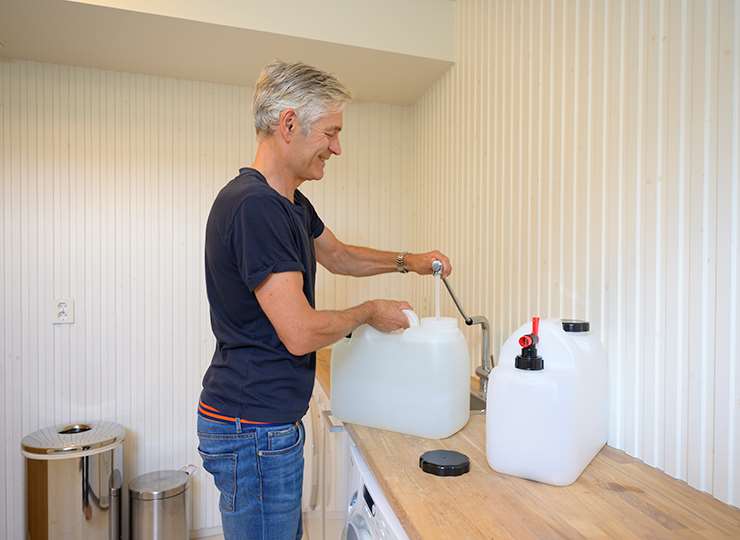
Emergency self-preparedness for people with disabilities
If you have a disability or special needs, a crisis may affect you differently to many other people. It is therefore important that you think through how a crisis would affect you personally and make the appropriate plans.
Advice on disabilities
- Practice what you would do in the event of an emergency situation, to reveal any challenges in advance.
- All those who can should have a plan to manage at home for one week without any help from the authorities.
- Speak to family, friends, neighbours, assistants or others so that they know how they can help you in an emergency situation.
- Keep a sheet of paper containing important information about your condition, important contact persons and how others can help you.
An emergency situation can lead to additional challenges for persons with a functional impairment. Some may have problems in taking in a lot of new information, others in having to deal with a lot of new people, whilst for others it can be a challenge to travel to new and unfamiliar places.
For many, with various assistive measures it can be best to remain at home during the emergency. There, everything is familiar and you have all the assistive measures you need. All those who can should have a plan to manage at home for one week without any help from the authorities.
If you already use health services from the municipality where you live, you will be among the first to receive help in an emergency. Remember that in an emergency situation, regular assistance can take longer to reach you at home. Speak to the municipality to find out what will apply to you during an emergency.
Self-preparedness adapted to you
By following the advice about self-preparedness for one week, you will have most of what you need. However, you must also consider making your own adjustments. Here are a few control questions that can help you to consider your own needs:
- What are the things you depend on every day? For example water, food, telephone, medications etc.
- What are your unique needs? For example assistive measures for speech/communication, white stick/mobility stick, wheelchair, assistant etc.
- If electricity, water or access to the Internet is no longer available, are there any alternatives for you? For example, alternative assistive measures that do not need electricity, communication that can be printed out, or spare batteries for hearing aids?
By practising what to do in an emergency situation, for example a long-term power failure, you will reveal challenges in advance and be able to plan what you would do in the event of a genuine emergency. The exercise can be made as simple as you wish. You may discover several issues that can be improved, just by imagining getting through a day without electricity. Write down here:
Ask for help
Speak to family, friends, neighbours, assistants or other persons you interact with about how an emergency situation will impact you, and which type of help you would need. In the event of a power failure, the mobile telephone network can become unavailable in just a couple of hours. Therefore it is important that you do not wait to ask for help.
Additionally, it can be a good idea to inform your housing association/co-ownership committee and neighbours if you know that you will face additional challenges in the event of longer power failure or if you need to be evacuated from your home.
If you have problems communicating, it can be a good idea to keep a sheet of paper describing your condition and what type of assistance you require. This makes it easier for both the emergency services and others around you to understand your needs and how they can help.
Danger to life and health
In the event of acute risk to life and health, call the emergency numbers 110, 112 and 113 or use 1412 for emergency calls via text telephone. Please note that in a major emergency, capacity can be greatly reduced and it can take longer than normal to receive assistance.
Emergency SMS is a service that allows persons who are deaf, hard of hearing or speech-impaired to contact emergency telephone numbers via SMS (text message). To use the service you must first register your number at: www.nodsms.no.

